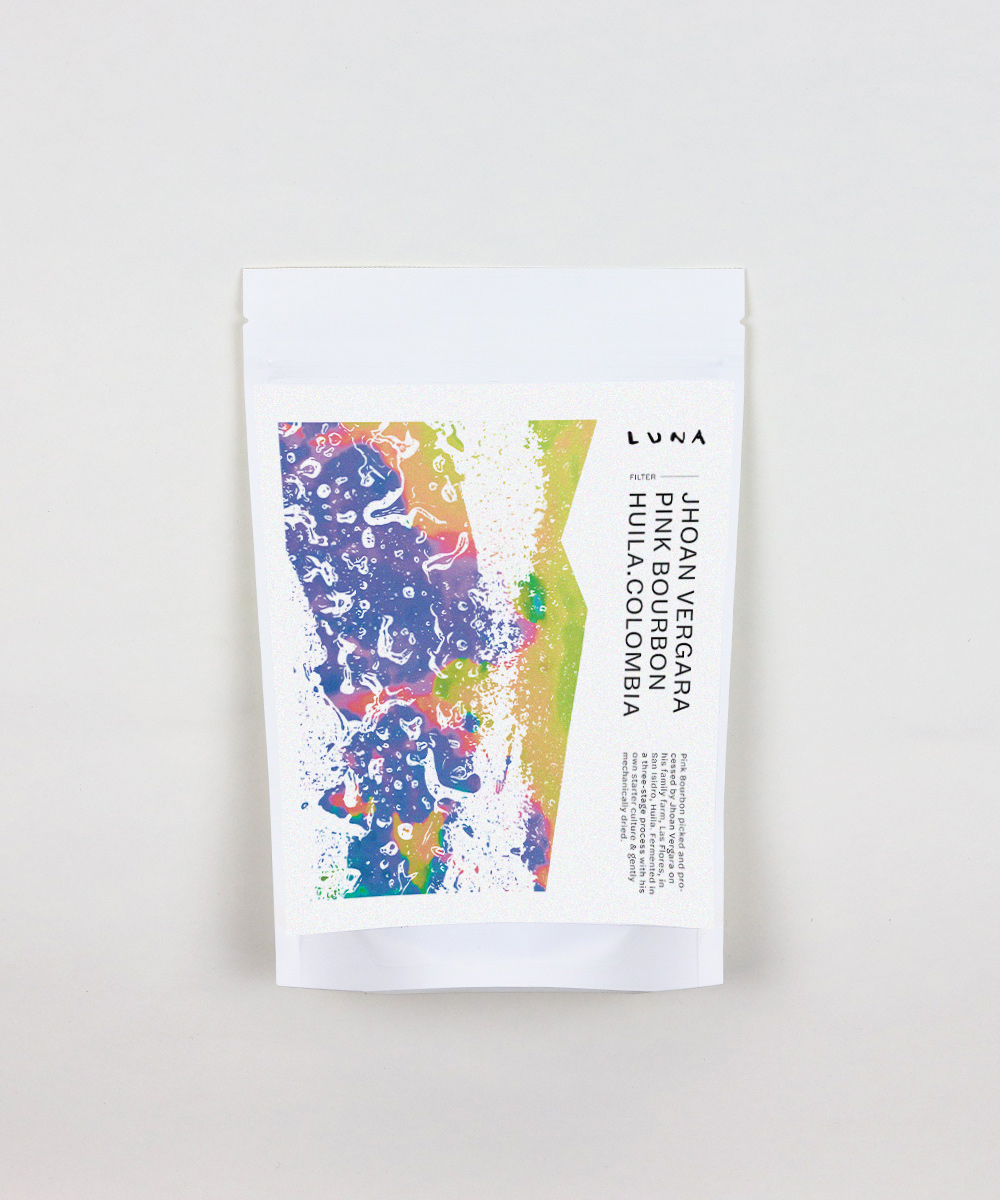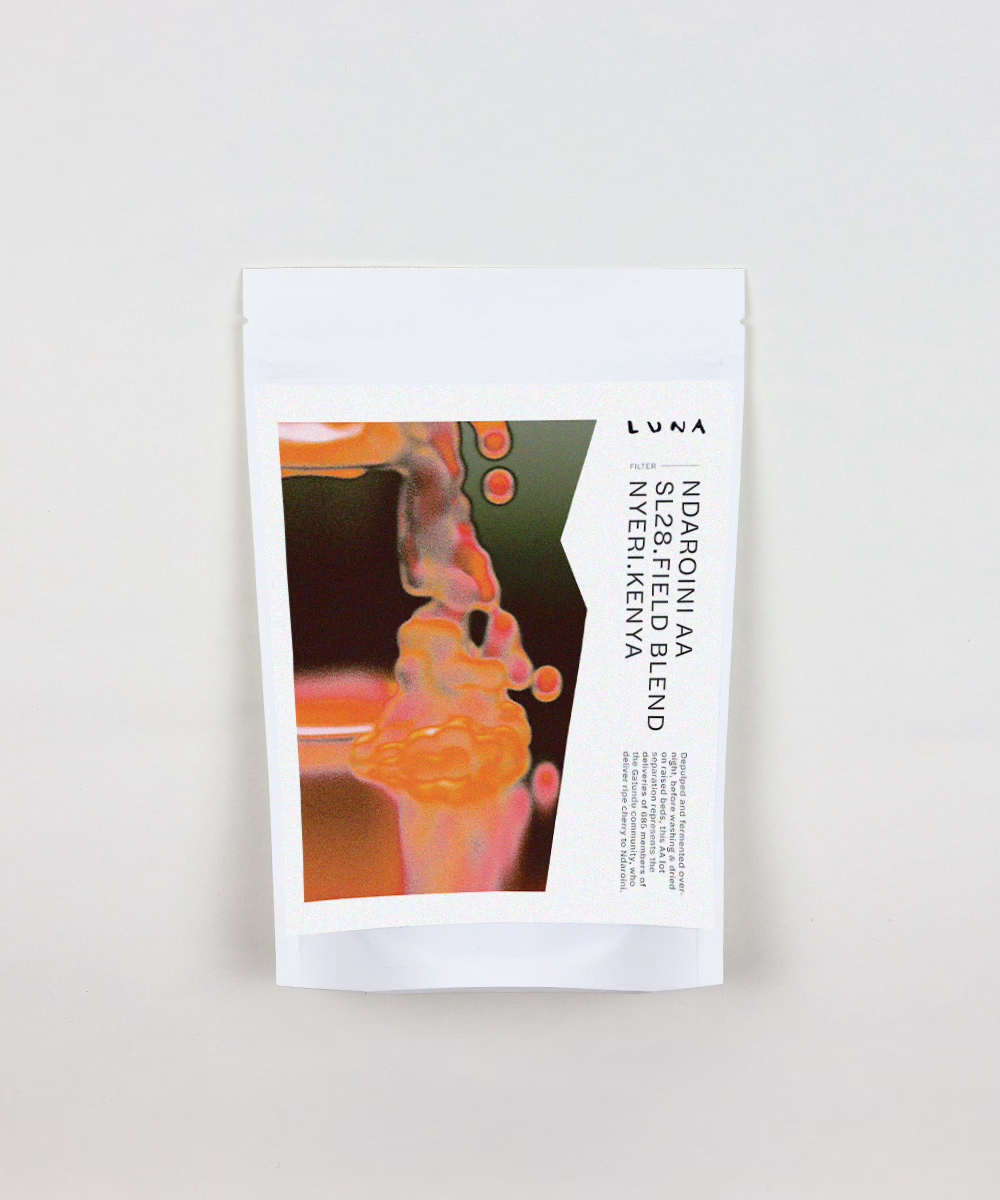Jhoan Vergara ~ Pink Bourbon | Huila, Colombia (2024)
US$0.00
Producer: Jhoan Vergara
Where: Huila, Colombia
Variety: Pink Bourbon
Processing: Multi-stage Washed
(24-48hrs. oxidization in cherry – depulped, yeast inoculated anaerobic fermentation)
Importer: Shared Source
Harvest: January 2024
Tasting notes: yellow fruits, floral, tropical citrus
Pink Bourbon picked and processed by Jhoan Vergara on his farm in Huila, Colombia. Fermented in a three stage process with his own starter culture & gently mechanically dried. Delightful lilac florals and delicate yellow fruits dominate this cup.
Processed first via oxidation of the whole fruit, next the coffee is inoculated with a mother culture Jhoan developed, dwelling in a low O2 environment. Finally, a warm rinse encourages microbes to continue doing their thing until halted when the coffee is mechanically dried. Roasted for filter. Floral and tropical
More
Close to a decade ago in a SENA lab in Pitalito, Michael Jackson poster on the wall, a large round table, late into the evening, there were a couple teenagers excitedly tasting through experimental lots they commandeered from their respective family farms. I was there too but I may as well have been a fly on the wall witnessing the start of what was to be a rise of the nerds over the next decade (I mean that in the most endearing way possible). Jhoan Vergara was among these young folks. Along with the Lassos of El Diviso farm- both families have had a highly supportive relationship over the years. They’ve shared processing knowledge, tips and tricks, and even share drying and processing infrastructure when both their farms find themselves at capacity.
Jhoan’s parents migrated from Cundinamarca to Huila in the early 90s- they came after an uncle had found success in Huila. Though Huila was a new part of the country for the family, coffee farming was not- Jhoan’s grandparents were coffee producers in the north. The family started with about 15 hectares in total, but they started with just 2 ha in coffee- and grew from there to plant up to 90,000 trees- almost entirely caturra. For the first 15 years or so, the family focused on local markets, and commodity coffees- the specialty coffee industry was still very nascent. In the early 00s, Jhoan’s mother sent a coffee into the Cup of Excellence competition, and though she didn’t win, the family began to focus more on quality, and Jhoan began to learn more about coffee.
At just 15 years old, Jhoan left high school in Pitalito and began to focus on the farm, and on coffee. He began to get curious about coffee- specifically, where it ended up, and who was buying it- and he ended up at the SENA- the Servicio Nacional de Aprendizaje, or National Training Service- where many coffee producers learn agronomy, cupping, roasting, and basic brewing skills. At the SENA, Jhoan met Nestor Lasso- which will end up being a crucial friendship and partnership.
Processing
Jhoan works with a microbiology lab in Pitalito, separating microorganisms from each variety of coffee cherry to reproduce them, and then reintroduces those microorganisms to the coffee mass. When the microorganisms are applied to the mass (either as cherry or de-pulped coffee), they will be able to work efficiently, without as much competition from other microorganisms.
Jhoan says that the distinctive floral notes in his pink bourbon comes from three processes- first, an oxidation (or uncontrolled ‘rot”) of the coffee fruit; second, from controlled fermentation with microorganisms in a low oxygen environment; and finally from a hot thermal shock which allows the yeasts and bacteria to continue fermenting the coffee as it moves towards the drying phase.
First, cherries are picked, and left in an open weave bag (tulas) for an initial cherry ferment or oxidation process- the mass gets hotter during this process, and cherries are left for 24-48 hours depending on the weather and the brix. From there, he floats cherries to homogenize the temperature again, and de-pulps the coffee, fermenting it in sealed plastic bags. He adds the microorganisms into the coffee at this phase. Finally, he washes the coffee with hot water- the thermal shock- which Jhoan says can lend more intensity to the cup profile. Jhoan hypothesizes that the pores of the coffee are more likely to open up with a thermal shock, and the sweet and acidic notes are intensified within the beans during this process. From there, Jhoan takes the coffee down to a dehumidifying machine that his friends Adrian and Nestor Lasso manage down in Bruselas, in Huila.

